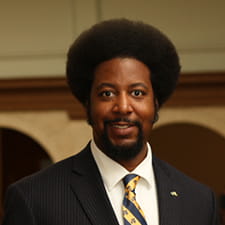Eight Important Questions Parents Should Ask Admissions Representatives
In the United States of America, there is a tremendous diversity of institutions in the landscape of higher education. According to The National Center for Education Statistics, in the 2015–16 academic year, there were well over 4,000 postsecondary degree-granting institutions. There are a lot of pathways and choices when pursuing higher education; here are a few questions that parents can ask admissions officers to help determine whether an institution is a good fit for their students.
1. What makes your college/university unique?
Several factors can make a college stand out. Are there unique aspects to the curriculum? Is there something special about the location of the college that contributes significantly to the student experience? Are there opportunities available to students (both inside and outside of the classroom) that aren't typically found on most campuses? Having an admission officer explain what is different about their school can help determine how good of a match it may be for a student.
2. What kind of student succeeds here?
Any college that is a great fit for everyone isn't a great fit for anyone. Ask questions to find out what kinds of experiences, characteristics, interests and skills make a student a strong candidate to be successful at an institution.
3. What kinds of support does the school offer students?
Find out about what kind of programming exists to help students transition from secondary school into the college or university setting. What kind of access do students have to professors outside of class? Are there academic and tutoring support services available? If so, is there any extra cost for access to those services? What kind of mental health counseling is available to students?
Find out about what kind of programming exists to help students transition from secondary school into the college or university setting.
4. What do students do during their free time?
In college, learning does not take place exclusively in the classroom, labs, or other traditional academic settings. Student involvement in clubs, organizations, athletics, civic engagement, and other activities can not only provide students with a rich and vibrant social life, they can provide students with additional experiences and skills that can be useful for their future personal and professional lives after they graduate from college.
5. What kind of career services does the school provide?
There is a lot more value to the college experience than professional preparation and training, but students should be prepared to enter the workforce or pursue an advanced degree after finishing their undergraduate studies. Are there people on campus to assist with résumé and cover letter writing? Do companies and organizations regularly visit campus to recruit students for employment? Is there a strong alumni network that can aid in the job search process for students about to graduate?
6. What types of financial aid are available? How do I apply?
For many college-bound students, cost plays at least a minimal role in deciding where they choose to pursue their studies. Financial aid can help make college affordable for families and generally comes from either state or federal government sources, the institutions themselves or private organizations. Almost every school will ask you to fill out the FAFSA if applying for aid, but you should ask whether the CSS Profile or any institutional financial aid forms are required. Is merit aid available as well as need-based financial aid?
7. How does the school facilitate critical thinking, creativity, and problem-solving?
Regardless of an intended major, whether a student is seeking a broad-based liberal arts education, or one grounded in professional preparation, these three qualities will serve students well in their lives after college. How does the curriculum help to develop these skills? Are there areas at the school outside of the curriculum that can help students further develop these skills?
8. How will the school change over the next few years?
In the 21st century, the world is changing at a very rapid pace. In addition to changes driven by technology, cultural shifts, governmental policies, and current events all ensure that the world of tomorrow will be different than the one we live in today. How does the school plan to adjust and adapt to the changes surrounding it in order to continue to be relevant in the future?
These are just a few potential questions that you could ask an admission officer. Hopefully, they can serve as a springboard for your own questions as you think about what your student is looking to get out of their college experience.
3141 Chestnut Street
Philadelphia, PA 19104
